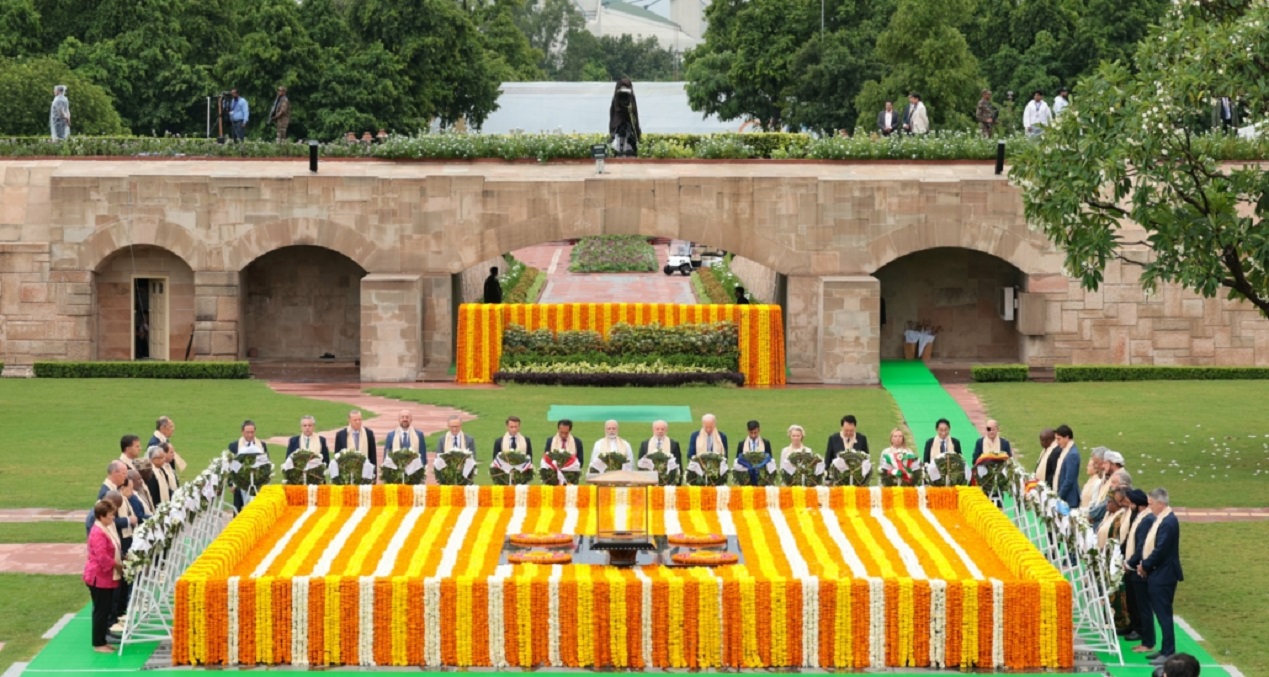An 83-paragraph G20 New Delhi Declaration was adopted by consensus at the opening session of the Summit on 9 September 2023, to the surprise of many observers of multilateral relations. The Declaration reflected a new multipolar response to global challenges that have derailed Agenda 2030 on Sustainable Development. This prioritized responding to the assessment of the United Nations that “progress on most of the SDGs is either moving much too slowly or has regressed below the 2015 baseline.”[1]
Back to the “core” of global economic cooperation
The Declaration reiterated the G20’s designation as the “premier forum for global international economic cooperation,” despite the massive Western media analysis on how the G20 would address the war in Ukraine.[2] This reiteration was necessary to restore the focus of both the G20 members and the wider international community on the role of the G20 to coordinate global economic policy responses to global challenges. As the host of the G20 Summit, India deployed its considerable diplomatic resources to engage with other G20 members bilaterally and collectively to provide a forward-looking, human-centric outcome that would make the G20 relevant to determining “the course the world takes”.
India’s objective of ensuring a consensus outcome was deliberately pursued to signal that the G20 had adapted to “pursue development models that implement sustainable, inclusive and just transitions globally, while leaving no one behind”. The strategy for achieving this outcome rested on two processes. One was to broaden and deepen participation, including by civil society and youth, to give a new energy to implementing issues already on the G20’s agenda. The other process was to ensure that any references in the Declaration to the war in Ukraine would be based on consensus in the outcome document, reflecting the solidarity and relevance of the G20 itself in a changing international environment.
The G20’s commitment on overcoming challenges to implement Agenda 2030 and its SDGs was evident in the outcomes reported to the Summit from the 200 sectoral G20 meetings hosted by India in 68 cities with the participation of over 100,000 G20 delegates. This resulted in generating huge public awareness within India and abroad of the important issues confronting multilateralism today.
India had publicly declared six priorities at the beginning of its Presidential term on 1 December 2022. These were increasing the effective participation of developing countries of the Global South in G20; prioritizing inclusive growth as the basis for reviving the derailed implementation of Agenda 2030 on Sustainable Development; identifying additional areas for climate action; introducing a focus on using technology to accelerate development through a human-centric approach; making women’s empowerment more effective; and reforming multilateralism.
Expanding representation of the Global South
At the opening session of the Summit, the G20 agreed to admit by consensus the African Union (AU) as a permanent and equal member of the grouping. With this single decision, 55 developing countries of the Global South, with a combined population of 1.3 billion people from Africa, were brought into the G20, effectively enhancing the voice of the Global South in the grouping. The diplomatic groundwork for this outcome had been laid early in India’s Presidency. On 12-13 January 2023 India hosted a virtual Voice of the Global South Summit, in which 125 developing countries participated, including 47 from Africa, 31 from Asia, 29 from Latin America and the Caribbean, 11 from Oceania, and 7 from Europe. The first opportunity for an expanded G20 to play its role in supporting the UN on development issues will come at the UN’s SDG Summit to be held in New York in September 2023.
Accelerating development with digital technologies
The G20 consensus on prioritizing the implementation of Agenda 2030 is reflected throughout the New Delhi Declaration. India’s advocacy of using digital technologies as a means for accelerating implementation of Agenda 2030 on Sustainable Development was welcomed by the G20, which noted the role of digital technology in “bridging the existing digital divides” and accelerating “progress for inclusive and sustainable development”. Of particular significance was the recognition of India’s Digital Public Infrastructure (DPI) model by the G20 as a template. The G20 agreed to formulate a framework with principles for DPI, while India offered to share its DPI, which uses shared digital systems built and leveraged by both the public and private sectors, using opensource software, with other G20 and Global South partner states to enable delivery of services at a societal scale. As India’s Prime Minister commented, this reflected the “democratization of technology”.[3]
Climate Action and Global Governance reform
Prime Minister Narendra Modi highlighted India’s contribution to the G20 on issues such as climate change and global institutional reform. India’s activist role in proposing international climate change cooperation, already visible in the establishment of the inter-governmental International Solar Alliance (ISA) with more than 125 member-states, and a Coalition for Disaster Resilient Infrastructure with a secretariat funded by India, continued during its G20 Presidency. The Declaration adopted the G20 Principles on Lifestyles for Sustainable Development (LiFE) initiated by India to adjust lifestyle and consumption patterns in society for sustainable development. It noted India’s offer to establish a Green Hydrogen Innovation Centre to be steered by the ISA.
On global governance issues, the thrust for “reformed multilateralism” advocated by India received a boost with the inclusion of the AU in the G20. This enlargement opened the door for the G20 to focus on implementing SDG 16.8 of Agenda 2030, which seeks to “broaden and strengthen the participation of developing countries in the institutions of global governance.” The G20 Declaration stated that “a more inclusive and reinvigorated multilateralism and reform aimed at implementing the 2030 Agenda is essential”. The enhanced participation of the Global South provides a new urgency to the reference in the Declaration to “continue the process of IMF governance reform.”
The assertion in para 14 of the G20 Declaration that “today’s era must not be of war”, initially mentioned in the context of the war in Ukraine, logically turns the G20’s attention to the reform of the UN Security Council (UNSC), because the UNSC is the only international body mandated by international law with the “primary responsibility” to “maintain international peace and security”.[4] As Prime Minster Narendra Modi elaborated prior to the Summit, “there are many different conflicts across various regions. All of them need to be resolved through dialogue and diplomacy.” He emphasized that the G20 must support faster movement “towards a more representative and inclusive order where every voice is heard”.[5]
2025: the window of opportunity
The forthcoming G20 Presidencies during 2024 and 2025 of Brazil and South Africa create a window for the G20 to align itself with the UN General Assembly’s unanimous mandate from September 2005 for reforming the UNSC “to make it more broadly representative, efficient and transparent and thus to further enhance its effectiveness and the legitimacy and implementation of its decisions.”[6] Additional permanent seats for Global South G20 members would be the logical outcome of such a reform after the New Delhi G20 Summit, whose theme was “One Earth, One Family, One Future”.
Endnotes
[1]UN Political Declaration for SDG Summit September 2023, paragraph 8. https://hlpf.un.org/sites/default/files/2023-09/PD%2030%20Aug.pdf?_gl=1*2xf087*_ga*ODQzMjQ2MDg4LjE2NzM0NzUxNjk.*_ga_TK9BQL5X7Z*MTY5NDQ2MTkxMy41NS4wLjE2OTQ0NjE5MTMuMC4wLjA.
[2]G20 New Delhi Declaration, 9 September 2023, para 5. https://www.g20.org/content/dam/gtwenty/gtwenty_new/document/G20-New-Delhi-Leaders-Declaration.pdf
[3]PM Narendra Modi Interview to Press Trust of India. https://www.narendramodi.in/prime-minister-narednra-modi-s-interview-to-pti-573501
[4]UN Charter, Article 24.1. https://www.un.org/en/about-us/un-charter
[5]Ibid.
[6]UN General Assembly resolution A/RES/60/1 dated 16 September 2005, para 153. https://www.un.org/en/development/desa/population/migration/generalassembly/docs/globalcompact/A_RES_60_1.pdf










Post new comment